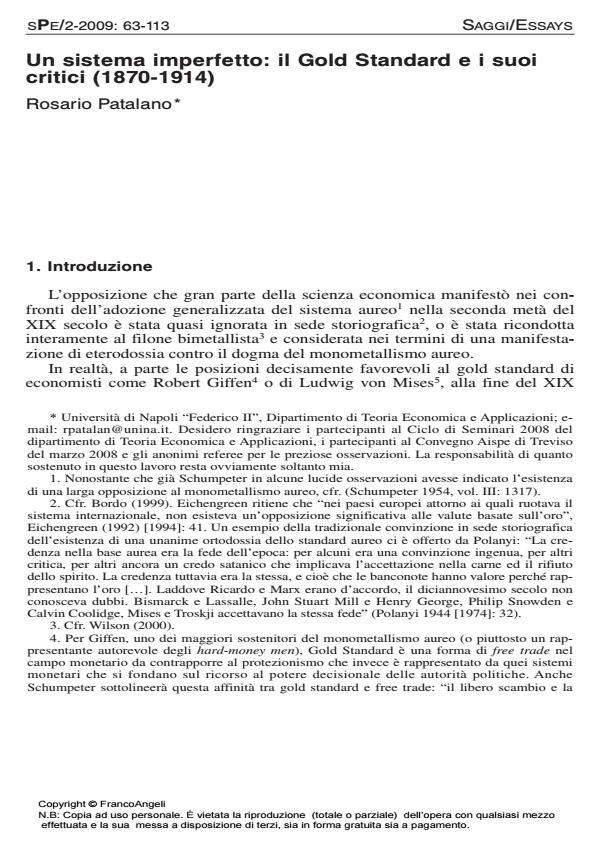Un sistema imperfetto: il Gold Standard e i suoi critici (1870-1914)
Journal title STORIA DEL PENSIERO ECONOMICO
Author/s Rosario Patalano
Publishing Year 2009 Issue 2009/2 Language Italian
Pages 51 P. 63-113 File size 1288 KB
DOI 10.3280/SPE2009-002004
DOI is like a bar code for intellectual property: to have more infomation
click here
Below, you can see the article first page
If you want to buy this article in PDF format, you can do it, following the instructions to buy download credits

FrancoAngeli is member of Publishers International Linking Association, Inc (PILA), a not-for-profit association which run the CrossRef service enabling links to and from online scholarly content.
Un sistema imperfetto: il Gold Standard e i suoi critici (1870-1914) - This paper examines the debate on the gold standard from 1870 to 1914. In this period the gold standard becomes the world’s monetary regime, but this political success is disputed by a considerable part of the coeval economic theory. The different critical positions showed the imperfections of the gold standard and the critical economists proposed several solutions. The most radical solutions wished a return to the bimetallic regime or the adoption of experimental system, like the symmetallism proposed by Marshall. Other critical positions were direct towards attempts of reforms, which leaded to the definition of the principles of the gold exchange standard, destined later on to regulate, without success, the international monetary regime after the World War One, and then to be reproposed at the Bretton Woods Conference and to become the basis of a long period of monetary stability.
Keywords: Gold Standard, Bimetallism, Gold Exchange Standard, Symmetallism, International Money, International Monetary Cooperation
Jel codes: B22; E42; F33; F55
Rosario Patalano, Un sistema imperfetto: il Gold Standard e i suoi critici (1870-1914) in "STORIA DEL PENSIERO ECONOMICO" 2/2009, pp 63-113, DOI: 10.3280/SPE2009-002004